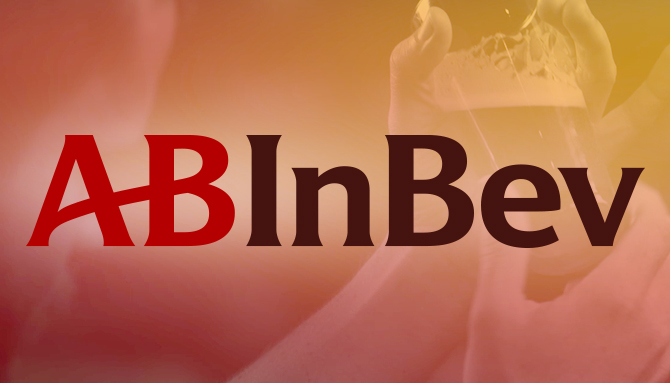
Anheuser-Busch InBev today reported full-year and fourth-quarter earnings, noting depletions declines of 2 percent in the U.S. in 2016 and continued struggles for its flagship Bud Light brand.
During the company’s year-end earnings call, held this morning, A-B InBev said the Bud Light brand experienced “mid-single digit” declines throughout 2016 and lost market share (50 basis points for the year) in the premium light segment.
“While Bud Light performance is not yet up to our expectations, we are encouraged by the positive results in the majority of states, where Bud Light market share trends improve,” ABI CEO Carlos Brito told analysts. “However, challenges remain in a few large and significant U.S. states.”
In an effort to improve trends for its largest brand, ABI is hoping the “Famous Among Friends” ad campaign, which launched in January, will help drive increased sales of Bud Light. Brito referred to that campaign as a return to the brand’s “roots” and said the company would continue to use music and sporting events, namely NFL games, to promote the brand.
“Turning around a brand the size of Bud Light takes time and discipline and we remain committed to doing that,” he said.
Similarly, Budweiser’s sales to retailers were down “mid-single digits” during the fourth quarter and for the year. The Budweiser brand also lost market share (25 basis points for the year), which the company said was the brand’s “best share performance in a decade.”
Despite the struggles, global revenues for ABI’s three core brands — Budweiser, Stella Artois and Corona (which it owns outside of the U.S.) — grew 6.5 percent for the year and 2.8 percent in Q4. Corona experienced 14.3 percent revenue growth on the year, and the brand saw 21 percent global revenue growth, excluding Mexico. Stella Artois revenue also grew 6.3 percent and Budweiser’s global revenue increased by 2.8 percent.
“Since Corona has been a part of our system, it’s done nothing but accelerate,” Brito said.
Corona saw double-digit growth in 23 countries, the company said. The only thing holding the brand back, Brito added, were capacity constraints in Mexico, which the company is working to rectify.
Other positives for ABI in 2016 included continued growth for the Michelob Ultra and Stella Artois brands. Michelob Ultra, the 95-calorie premium beer which ABI touted as “the fastest growing brand in the U.S.,” gained share in the U.S. for the seventh consecutive quarter. Brito said he believes there is more room for Michelob Ultra to grow, and the company is investing in its acceleration with additional marketing support.
Meanwhile, U.S. sales of Stella Artois grew by double-digits for the 23rd consecutive quarter.
There was surprisingly little talk of ABI’s U.S. craft brands during the call, but the company said its High End portfolio of offerings — which now includes brands from Goose Island, Blue Point, Breckenridge, Golden Road, Four Peaks, 10 Barrel, Devils Backbone and Karbach, as well as SpikedSeltzer and Virtue Cider — grew share and increased sales to retailers by double digits on the year.
Brito added that ABI’s craft portfolio experienced 30 percent growth, and the company would continue investing in its craft brands while “forming the portfolio” it needs for future growth in that segment.
Other numbers of note:
In the U.S., ABI’s sales to retailers dipped 2.7 percent during the fourth quarter (and 2 percent on the year). The rest of the industry, meanwhile, experienced a 1 percent decline in sales to retailers in 2016 and a 1.6 percent decline during Q4.
Sales to wholesalers, meanwhile, were down 1.7 percent for the year and 3.6 percent during the final quarter. The company also saw its market share drop by about 50 basis points in 2016.
Even though ABI’s revenue was flat in the U.S. in 2016, the company did grow global revenue by 2.4 percent (and 4.5 percent per hectoliter) for the year. Nevertheless, global beer volumes declined 1.4 percent on the year and 3 percent during the fourth quarter.
Brito described 2016 as a “challenging year,” due to beer volume declines in Brazil. Last year, ABI’s beer volumes plunged 6.6 percent in that country and Brito told analysts that the company is “cautiously optimistic” about the future of the Brazilian beer market.
Brito also brushed off a question about Heineken N.V.’s $1.09 billion acquisition of Brasil Kirin Holding S.A.
“The competitors are not new to the market,” he said. “The fact that they combined, that gives them more scale. We’re used to competition.”
Between April 1 and December 31, ABI realized $282 million in synergies and cost savings due to the SABMiller transaction, the company said. SABMiller reported a $547 million savings as of March 31. Forecasting the future, ABI expects to recapture about $2 billion over the next three-to-four years.
In closing, Brito acknowledged the challenges of 2016 but said with the MegaBrew merger now over, ABI has built a “solid foundation” and the company will work to “build a bridge to the company we aspire to be” in 2017.
